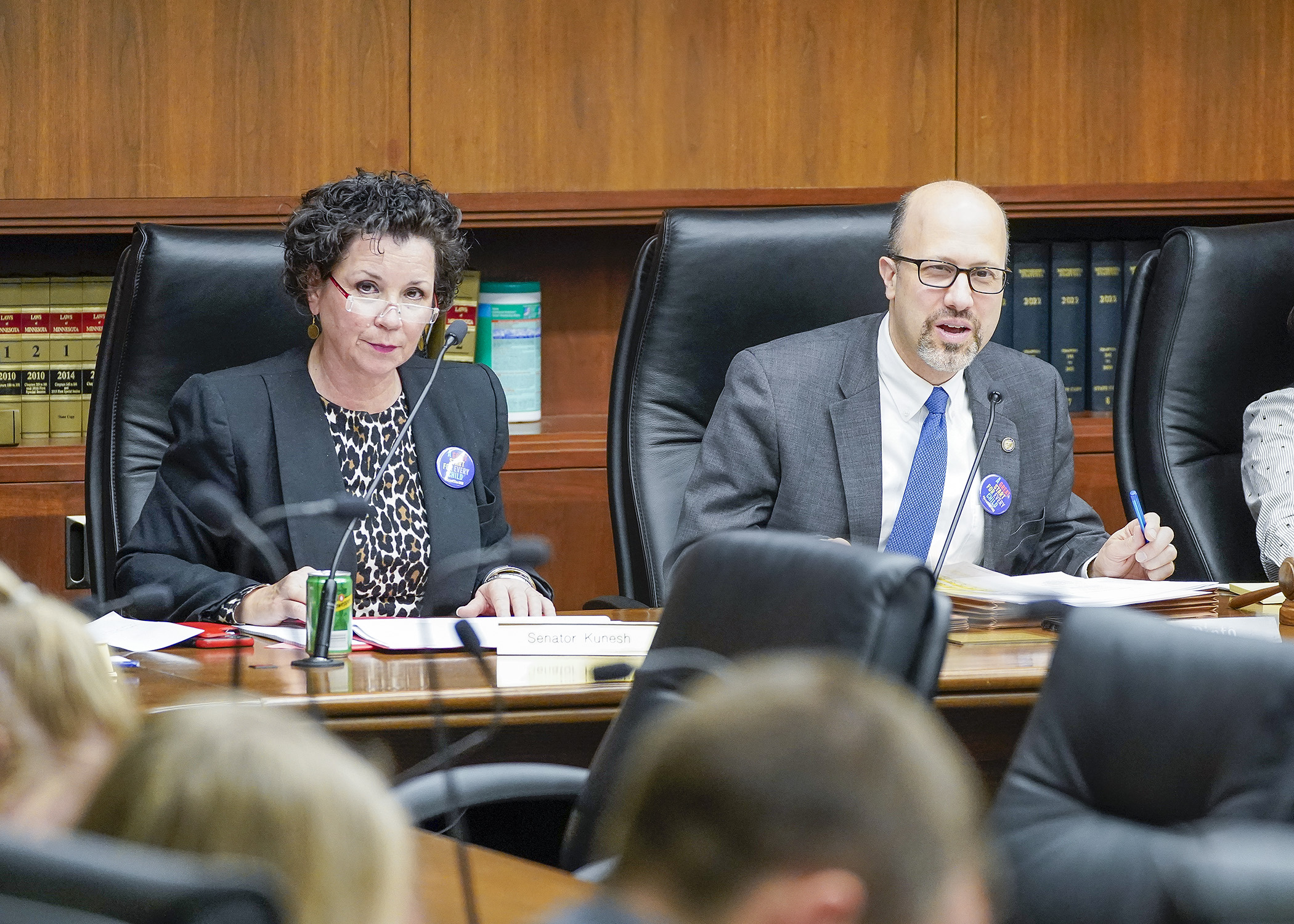Early education conferees compare House, Senate bills

Conferees on the omnibus early childhood finance bill learned Monday that although the House and Senate bills would both appropriate $300 million in new spending during the upcoming biennium, the House language includes several provisions the Senate does not.
Members were given a side-by-side walkthrough of the bills by nonpartisan staff but took no other action. Rep. Dave Pinto (DFL-St. Paul) and Sen. Mary Kunesh (DFL-New Brighton), who co-chair the committee, each expressed optimism progress toward a final agreement would be made before the panel meets again in the next day or two.
Because financial oversight of early education programs falls under the jurisdiction of education and human services committees in both the House and Senate, the conference committee is working to match provisions in one House bill (HF2292) with two Senate files — SF1311 and portions of the Senate’s omnibus education finance bill.
Pinto called the conference committee “a little unusual” because of that.
“We’re matching up those different pieces, but this is the place for us to have a conversation about early learning provisions in the two bodies and bring them together,” he said.
[MORE: See the side-by-side comparison]
The bulk of the new spending in each bill would be devoted to an increase for the Early Learning Scholarship program, which testifiers this session have said is one of the best methods to prevent opportunity gaps from opening among children by helping low-income families access programs that prepare young children to attend school.
The House proposes an increase of $265.8 million for the scholarships during the upcoming biennium while the Senate proposal is $270.5 million. Both bills would transfer that money from the General Fund to the Special Revenue Fund because funds in the latter do not cancel at the end of the biennium.
Another difference is a proposal meant to expand eligibility for those scholarships. The House would set a family’s eligibility to participate in the program at 47% of the state median income, while the Senate would set eligibility at 200% of the federal poverty level.
The House bill also includes $5.52 million for that formula allowance increase, but the Senate includes its funding in another target area.
Provisions in the House bill but not in the Senate language include:
- $2.52 million to help schools conduct entry assessments to identify the percentage of kindergartners who meet or exceed end-of-year prekindergarten early learning standards. The assessments, which are currently optional, would be required;
- $1.38 million for administrative and IT costs related to the prekindergarten program, which is in another target area in the Senate;
- $500,000 for children’s savings accounts start-up grants;
- $500,000 to the Office of Higher Education for early education curriculum grants;
- $300,000 for a grant to an executive function curriculum pilot program;
- $300,000 for the Way to Grow program to extend its home visiting services;
- $204,000 to the Department of Education for administrative costs related to developmental screening; and
- $200,000 to the Metro Deaf School for early childhood special education services.
One provision in the Senate language is $20 million for the Head Start program. The House proposes a $10 million increase for Head Start that could be used for infrastructure but not operations.
Other differences between the two bills include House provisions that would:
- beginning July 1, 2028, require schools to employ a licensed teacher for preschool, prekindergarten and early education programs, although teachers with five years of experience prior to Sept. 1, 2028, would be exempt;
- establish a Grow Your Own early childhood educator grant program;
- remove a requirement that programs participating in the Early Learning Scholarship program have a three- or four-star rating in Parent Aware; and
- modify the definition of teacher for the purposes of the Public Employment Labor Relations Act.
Kunesh said work to reconcile the two bills has been ongoing but encouraged conferees to look through the bills and offer comments and suggestions as those efforts proceed.
“We could move through this pretty quickly, which is our hope to get it off our to-do list,” she said.
However, Pinto said a couple of funding provisions in question may be tied to other bills, which may slow progress until agreements are reached in other areas.
Related Articles
Search Session Daily
Advanced Search OptionsPriority Dailies
Speaker Emerita Melissa Hortman, husband killed in attack
By HPIS Staff House Speaker Emerita Melissa Hortman (DFL-Brooklyn Park) and her husband, Mark, were fatally shot in their home early Saturday morning.
Gov. Tim Walz announced the news dur...
House Speaker Emerita Melissa Hortman (DFL-Brooklyn Park) and her husband, Mark, were fatally shot in their home early Saturday morning.
Gov. Tim Walz announced the news dur...
Lawmakers deliver budget bills to governor's desk in one-day special session
By Mike Cook About that talk of needing all 21 hours left in a legislative day to complete a special session?
House members were more than up to the challenge Monday. Beginning at 10 a.m...
About that talk of needing all 21 hours left in a legislative day to complete a special session?
House members were more than up to the challenge Monday. Beginning at 10 a.m...